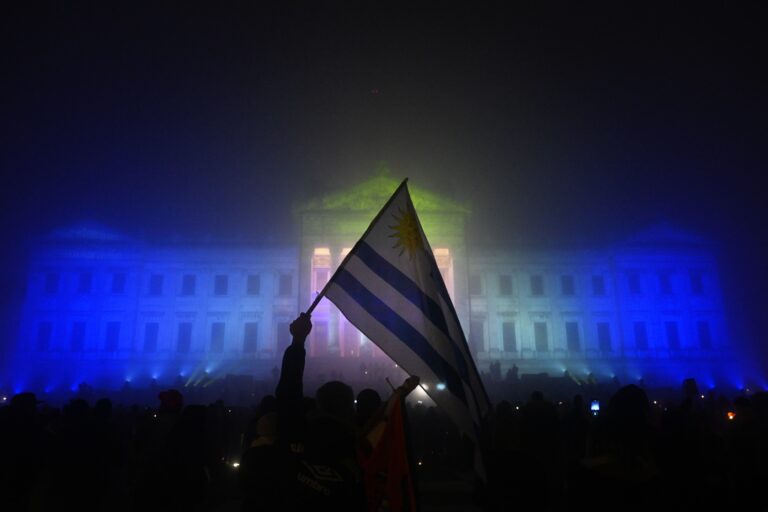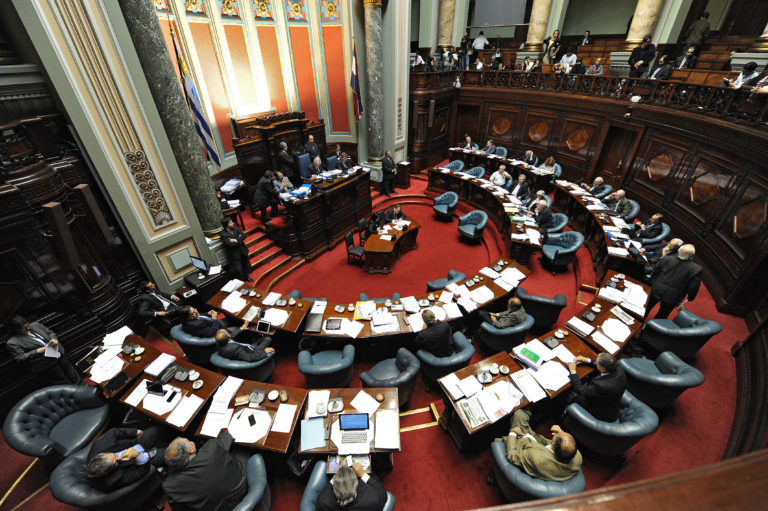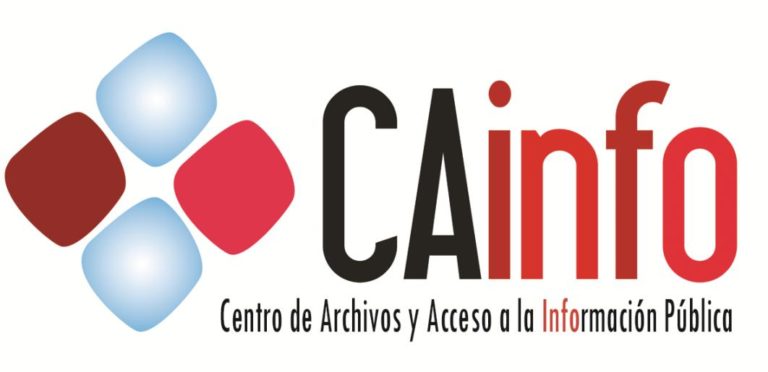(AMARC/IFEX) – The following is a 6 June 2007 AMARC press release: Congress approves draft law on community broadcasting On 5 June 2007, the Uruguayan Congress (Cámara de Representantes) approved by 49 out of a total of 59 votes, a draft law aimed at regulating and formally recognizing a third broadcasting sector: community radio and […]
(AMARC/IFEX) – The following is a 6 June 2007 AMARC press release:
Congress approves draft law on community broadcasting
On 5 June 2007, the Uruguayan Congress (Cámara de Representantes) approved by 49 out of a total of 59 votes, a draft law aimed at regulating and formally recognizing a third broadcasting sector: community radio and television, to be run by non-profit civil society organizations.
The draft law recognizes that radio broadcasting “is a technical support for exercising the human right to freedom of expression and freedom of information, which is an inherent right that predates state intervention.” Under the new law, the radio-electric spectrum will be considered “an asset belonging collectively to humanity, subject to the administration of states, and therefore its equitable use by all of Uruguayan society is the overriding principle that will guide its administration.”
The draft law outlines some key principles to guide the democratic administration of radio-electric frequencies by the state, including: “the promotion of plurality and diversity” as a strategic objective, “non-discrimination and guarantees of equal access” and the “transparent public announcement of the procedures and conditions of the allocation of broadcasting rights.”
These principles were approved unanimously by the legislators.
The draft law defines community radio and television stations as “non-state services in the public interest, offered by non-profit civil society organizations” that are geared toward “satisfying the communication needs of the Republic’s inhabitants, and facilitating their exercising of their right to information and freedom of expression.”
The draft law also expressly stipulates that no prior or arbitrary limits may be placed on community media’s exercise of freedom of expression by limiting the power of their transmitters, the range of coverage, or the number of stations in any locality. “In no case is it to be understood,” the law states, that such a service “is necessarily geographically restricted in its coverage; the service is defined by its social objective, and not by the reach of the transmitter; the latter will depend upon the availability and planned use of the spectrum, as well as the proposed purpose of the station.”
The law establishes for the first time in Uruguay that frequencies must be allocated through open competitive processes that are public, transparent, and non-discretionary, and that involve prior public consultation. It also establishes, in accord with the recommendations of the Organisation of American States (OAS), that a part of the spectrum must be reserved for non-commercial and community use.
Following the positive legal precedents in Colombia, Ecuador, Venezuela, Bolivia and Peru, the law does not confuse the non-profit status with the right to seek funding. To ensure “the right to secure economic sustainability”, the law allows community broadcasters to “obtain resources from, among other sources, donations, sponsorships, and advertising, including governmental advertising, in their access to which they will not be discriminated.”
Another innovative aspect of the draft law is its call for the creation of a Honorary Consultative Council (Consejo Honorario Consultivo), comprised of civil society representatives and representatives of public and private universities, as well as government representatives, to observe and participate in the process of the allocation and renewal of broadcasting frequency concessions.
Although the Council would not make decisions, its existence would ensure greater transparency and citizen input into the state’s management of this realm, which is so central to freedom of expression and has been the subject of recent debate throughout the Americas.
The original draft of the law, introduced to Parliament in 2005 with the support of a group of legislators, stemmed from an initiative by a coalition of organizations including AMARC, the national journalists’ association (Asociación de la Prensa Uruguaya, APU), the public university (Universidad de la República), human rights organizations, and the national workers’ central.
The draft was approved after almost a year and a half of discussion in Congress, where all stakeholders were heard out. The law was approved despite heavy pressure by corporate broadcast media to limit the rights and range of community broadcasters, and to prevent them from obtaining television rights or the right to fundraise.
The full text of the draft law (in Spanish) is available at: http://legislaciones.amarc.org/URU_Proyecto_Ley_Radiodifusion_Comunitaria_05062007.pdf


